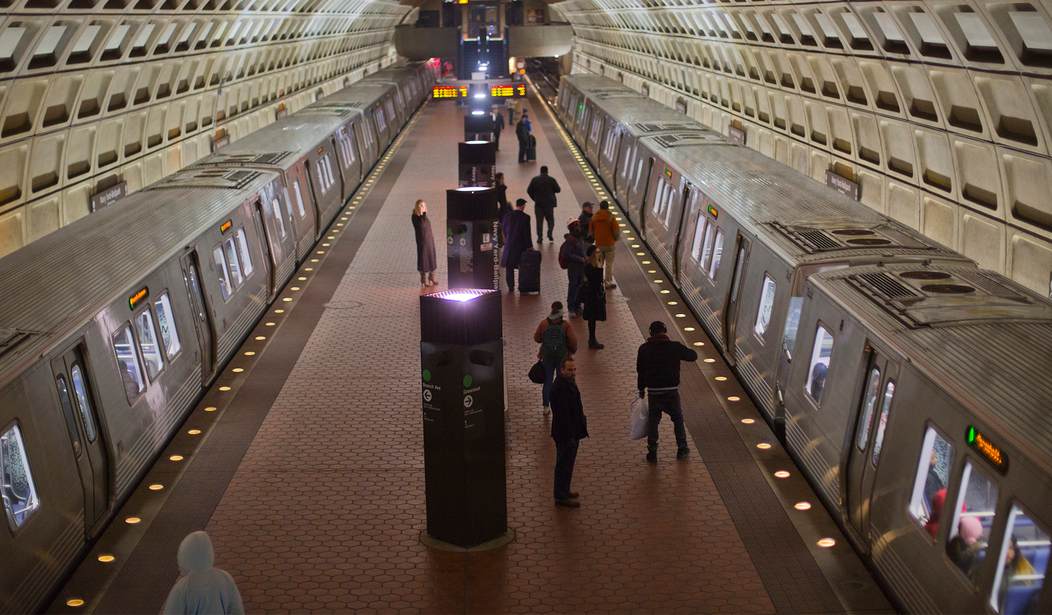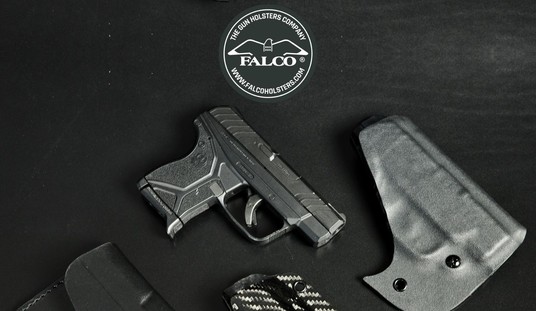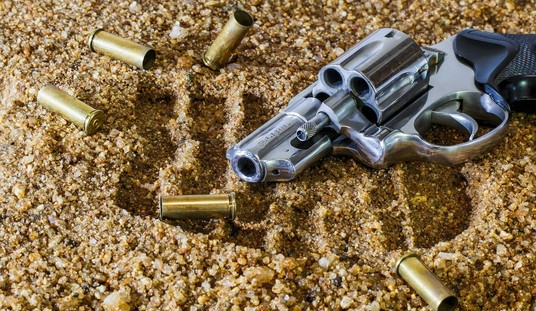Firearms and other weapons are prohibited on Washington, D.C.’s public transportation system, even for those who possess a valid concealed carry license, but the designation of buses, subways, and stations as “gun-free zones” is a misnomer at best. There are plenty of armed criminals willing to ignore that prohibition, and at least five separate shooting incidents have been reported on Metro property since the start of the new year.
A federal lawsuit challenging the designation of public transportation as a “sensitive place” is already underway, and unfortunately that’s probably what it’s going to take in order for Metro to change its policies that put riders at risk. In the meantime, members of the group Guardian Angels say they’ll be providing a visible presence at some bus and subway stops in the hopes of reducing the growing number of violent crimes in these locations.
The Guardian Angels are a volunteer group focused on crime prevention that started in New York City in 1979, with the D.C. Chapter being started by John Ayala in 1989.
Ayala, now the leader chief for the D.C. Guardian Angels, said they have patrolled Metro locations on and off since they arrived in the nation’s capital, but felt they needed to ramp up patrol given recent violence.
“We’re planning on going out there, if we see something we’re going to report you because enough is enough. We have to make the Metro safe for our citizens of D.C. to live and work,” Ayala said. “Now it’s a call for action to get the Guardian Angels back out there, get more volunteers to go and be a deterrent, and work in partnership with Metro Transit as the eyes and ears because most people don’t want to report what they see. They want to leave.”
Since January, violent crimes at the Metro have included: two children getting shot while getting off a Metrobus from school, a teenager being shot and killed at the Southern Avenue station, and a Metro employee getting shot and killed while trying to subdue a man with a gun on the Potomac Avenue platform.
Just days ago, a 19-year-old was shot and killed inside a Metrobus in Montgomery County.
Ayala said he and other volunteers with the group are ready to do more than just report crimes to police.
“If we see an altercation where somebody is getting jumped, we will go in physically, pull them apart, try and deescalate the situation before it gets to the point where one of those people fighting pulls out a blade or a gun,” Ayala said.
I’ve got no issues with what Ayala is doing, but let’s be honest here: Metro already has a designated police force all its own with an authorized strength of more than 450 uniformed officers, and even that’s not been enough to prevent these shootings from taking place. I doubt that a couple of dozen volunteers standing guard at a few Metro stations is going to have a substantive impact, though it may make riders feel a little safer.
If those riders want to actually be safe, however, they should have the ability to protect themselves on Metro property instead of hoping that a cop or a Guardian Angel will be around to step in if there’s trouble. That’s why four individuals are currently suing over Metro’s prohibition on lawful concealed carry, arguing that the regulation infringes on their fundamental right to armed self-defense in public.
DC Code Section 7-2509.07 goes far beyond Heller or Bruen in restricting handgun carry in a variety of locations other than the schools and government buildings Heller discussed as presumptively sensitive or courts, polling places and legislative assemblies Bruen states as established sensitive places. Although it is questionable whether many of the areas set forth in DC Code Section 7-2509.07 are truly sensitive areas, one area stands far apart from the others in terms of the lack of any basis for its designation as such: that is the prohibition on the carriage of personal protection firearms on public transportation vehicles such as Metro buses and trains. See DC Code Section 7-2509.07(a)(6). Discussion of each of the prohibited locations set forth in DC Code Section 7-2509.07 makes this abundantly clear.
… Public transportation vehicles and stations, essentially the DC Metro, share few, if any, of the characteristics that might support the designation of other locations as sensitive areas, assuming historical support exists for such other areas to be considered sensitive. They are not largely populated with persons lacking the physical ability to defend themselves with a firearm or other tool. They are not populated with individuals who would be high value targets to a terrorist or active killer. They are not landmarks or symbols of our nation which would be inviting to terrorists or active killers.14 The Metro system does not screen persons entering its stations or embarking on a Metro bus or train. The Metro is not an area of intellectual debate, law-making, adjudication, voting, or where demonstrations regularly take place. The Metro is essentially a commercial enterprise providing an essential transportation service to an area with highly congested routes of travel. And although Metro has its own police force, the overwhelming number of trains and buses lack any police presence. Most importantly, there is not an established tradition or history of prohibitions of carrying firearms on public transportation vehicles despite the rise of public transportation shortly after the Founding. In short there is no basis to label the Metro as a sensitive area.
A federal judge declined to issue an injunction barring Metro from continuing to enforce its provisions earlier this month, but the case is still in the early stages and it’s likely to be some time before gun owners have any real hope of the policy being thrown out. In the meantime, Metro’s prohibition will continue to be regularly ignored by violent criminals, just as the decision makers in D.C. government and the Washington Metropolitan Area Transit Authority continue to ignore the inherent right of self-defense of Metro riders.









